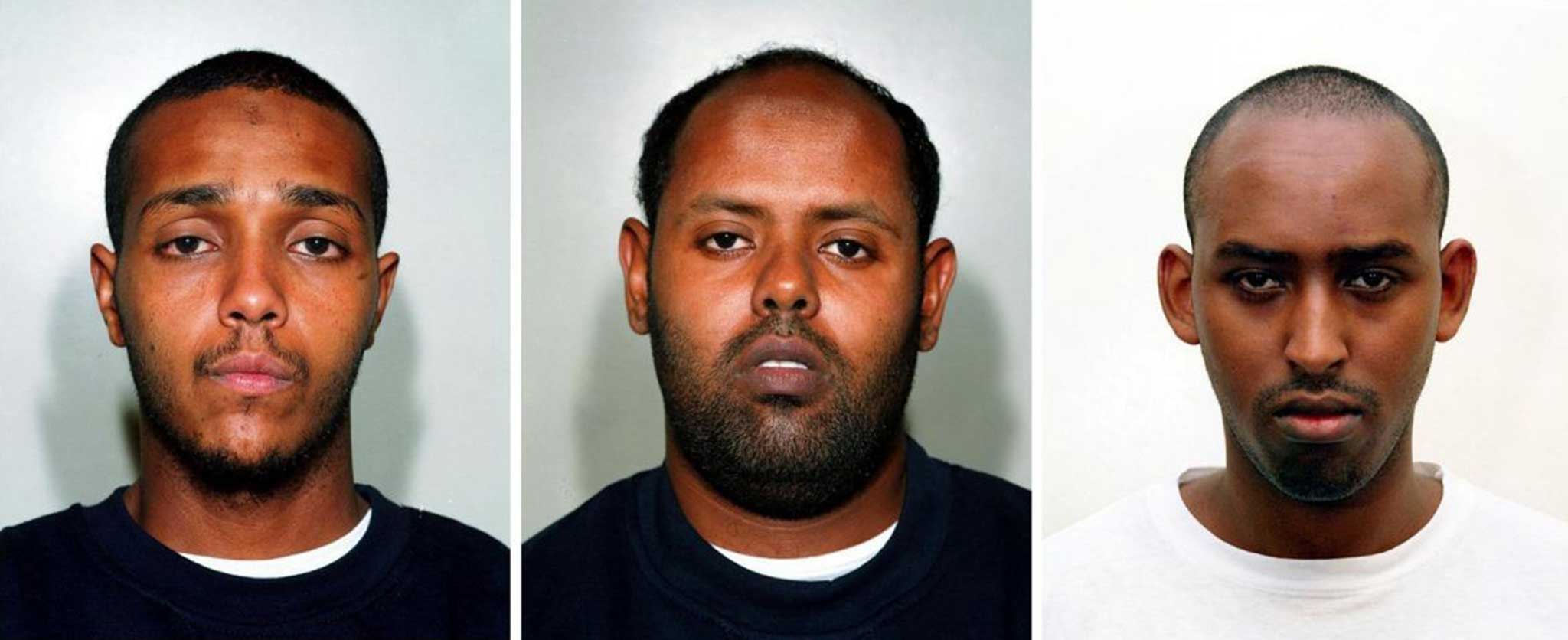July 2005 London bombers lose European Court of Human Rights appeal
The four were convicted in a British court in July 2007

Failed 21 July 2005 bombers who attempted to blow up the London Underground network have lost an appeal against their convictions at the European Court of Human Rights (ECHR).
Somali nationals Muktar Said Ibrahim, Ramzi Mohammed and Yassin Omar claimed their convictions were unfair as they were denied access to lawyers during police questioning and statements they gave were subsequently used at trial.
A fourth claimant - Ismail Abdurahman - was convicted of assisting one of the suspected bombers and also claimed his trial was unfair as a statement he provided as a witness, rather than a suspect, was used against him.
Human rights judges at the ECHR in Strasbourg, France, found that no prejudice had been caused to the failed bombers' right to a fair trial as a result of the failure to provide access to a lawyer before and during their interviews or to provide access to a lawyer to Abdurahman during his initial police interview.

All four men have three months to refer their appeal to the Grand Chamber of the ECHR for a final attempt to challenge their convictions.
At the heart of the case was the question of delaying access to a lawyer during police questioning, which took place in the aftermath of the attempted suicide bombings.
Ibrahim, Mohammed and Omar, who were born in 1978, 1981 and 1981 respectively, were temporarily refused legal assistance for police "safety interviews" - conducted urgently for the purpose of protecting life - to be held.
The terrorists' statements during those interviews, denying any involvement in the events, were later admitted as evidence at their trial.
Unlike the other applicants, Abdurahman was not suspected of detonating a bomb and was interviewed as a witness.
He started to incriminate himself by explaining his encounter with one of the suspected bombers shortly after the attacks and the assistance he provided to that suspect.
The ECHR judgment said that the police did not at that stage arrest him and advise him of his right to silence and to legal assistance, police continued to question him as a witness and took a written statement from him. He was subsequently offered legal advice and consistently referred to his written statement.
This statement was subsequently admitted as evidence at his trial.
Judges at the ECHR said: "It has been convincingly established that at the time of the impugned police interviews there was an exceptionally serious and imminent threat to public safety and that this threat provided compelling reasons which justified the temporary delay of all four applicants' access to lawyers."
The planned attack came two weeks after the 7/7 bombers killed 52 people on three Tube trains and a bus in central London in 2005. The failed bombers claimed they took home-made explosives in rucksacks on to the Underground network as an elaborate hoax to protest against the war in Iraq.
Ibrahim, Mohammed and Omar were convicted in July 2007 of conspiracy to murder and sentenced to a minimum term of 40 years imprisonment. The Court of Appeal subsequently refused leave to appeal against their conviction.
Abdurahman was convicted in February 2008 of assisting one of the suspected bombers and of failing to disclose information about the bombings. He was sentenced to a total of 10 years imprisonment.
His appeal against his conviction was dismissed in November 2008 and his sentence reduced to eight years imprisonment on account of the early assistance that he had given to the police.
Press Association